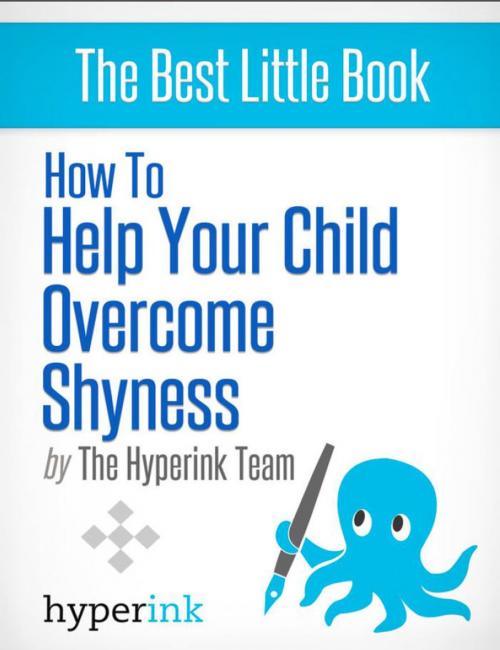My Child Is Shy: How Do I Help My Kid Overcome Shyness?
Nonfiction, Reference & Language, Reference, Guides & Handbooks| Author: | Sara McEwen | ISBN: | 9781614649144 |
| Publisher: | Hyperink | Publication: | February 24, 2012 |
| Imprint: | Hyperink | Language: | English |
| Author: | Sara McEwen |
| ISBN: | 9781614649144 |
| Publisher: | Hyperink |
| Publication: | February 24, 2012 |
| Imprint: | Hyperink |
| Language: | English |
ABOUT THE BOOK
If your child is shy, you probably hear other people discuss how quiet he or she is a lot. They might say, "what a shrinking violet," or, "Joe is a good listener." They might make a joke about it: "I wish we could get Jane to stop being such a blabbermouth!" They might ask you what's wrong with your child, or try to prompt your child to speak up by asking leading questions. Your child's teachers might mention that Joe or Jane has trouble participating in class discussions. You might notice that your child does not bring a lot of friends home after school, and seems uncomfortable and awkward when you attend social gatherings together.
Of course, it is important to remember that shy children are unique. Some of these scenarios might apply to your child, but some might not. Some shy children are able to hide their shyness better than others, but still struggle with some of the effects of shyness. Some children might not be shy at all, but just a little more thoughtful and soft-spoken. According to Doing It For Me, if you are not sure where your child stands in terms of shyness, there are different signs to watch out for...
EXCERPT FROM THE BOOK
Being aware of the cause of your child's shyness can help you change less-than-ideal situations, but in many cases, your child might just be naturally shy. Try not to view your child's shyness as a problem that you caused, but as a normal issue that you and your child can work on together.
Shyness also shows up in different ways. Some shy children are shy and withdrawn around everyone, including family members. These children might have a very difficult time making friends or even getting along well with parents and siblings. Some kids might get along with family members, but have trouble meeting new friends. After this child has managed to make friends, however, the friendships are often close-knit and loyal.
Other shy children may be OK around people he or she already knows, but panic at the thought of new situations or meeting new people. Pay attention to your child's behavioral habits. "Shy" is a small term that covers a wide range of behaviors, so be sure to appreciate your child's unique habits and specific areas of shyness. Here’s how to start addressing shyness...
Buy a copy to keep reading!
ABOUT THE BOOK
If your child is shy, you probably hear other people discuss how quiet he or she is a lot. They might say, "what a shrinking violet," or, "Joe is a good listener." They might make a joke about it: "I wish we could get Jane to stop being such a blabbermouth!" They might ask you what's wrong with your child, or try to prompt your child to speak up by asking leading questions. Your child's teachers might mention that Joe or Jane has trouble participating in class discussions. You might notice that your child does not bring a lot of friends home after school, and seems uncomfortable and awkward when you attend social gatherings together.
Of course, it is important to remember that shy children are unique. Some of these scenarios might apply to your child, but some might not. Some shy children are able to hide their shyness better than others, but still struggle with some of the effects of shyness. Some children might not be shy at all, but just a little more thoughtful and soft-spoken. According to Doing It For Me, if you are not sure where your child stands in terms of shyness, there are different signs to watch out for...
EXCERPT FROM THE BOOK
Being aware of the cause of your child's shyness can help you change less-than-ideal situations, but in many cases, your child might just be naturally shy. Try not to view your child's shyness as a problem that you caused, but as a normal issue that you and your child can work on together.
Shyness also shows up in different ways. Some shy children are shy and withdrawn around everyone, including family members. These children might have a very difficult time making friends or even getting along well with parents and siblings. Some kids might get along with family members, but have trouble meeting new friends. After this child has managed to make friends, however, the friendships are often close-knit and loyal.
Other shy children may be OK around people he or she already knows, but panic at the thought of new situations or meeting new people. Pay attention to your child's behavioral habits. "Shy" is a small term that covers a wide range of behaviors, so be sure to appreciate your child's unique habits and specific areas of shyness. Here’s how to start addressing shyness...
Buy a copy to keep reading!















